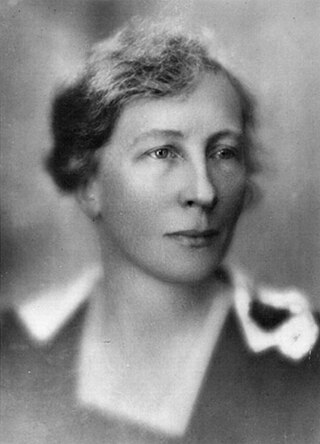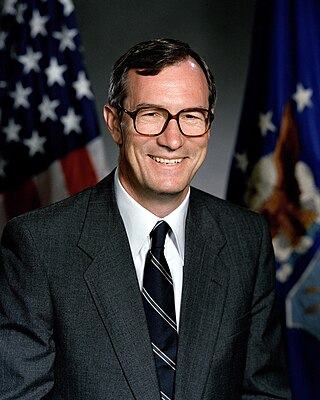Related Research Articles
Management science is a wide and interdisciplinary study of solving complex problems and making strategic decisions as it pertains to institutions, corporations, governments and other types of organizational entities. It is closely related to management, economics, business, engineering, management consulting, and other fields. It uses various scientific research-based principles, strategies, and analytical methods including mathematical modeling, statistics and numerical algorithms and aims to improve an organization's ability to enact rational and accurate management decisions by arriving at optimal or near optimal solutions to complex decision problems.

Lillian Evelyn Gilbreth was an American psychologist, industrial engineer, consultant, and educator who was an early pioneer in applying psychology to time-and-motion studies. She was described in the 1940s as "a genius in the art of living." Gilbreth, one of the first female engineers to earn a Ph.D., is considered to be the first industrial/organizational psychologist. She and her husband, Frank Bunker Gilbreth, were efficiency experts who contributed to the study of industrial engineering, especially in the areas of motion study and human factors. Cheaper by the Dozen (1948) and Belles on Their Toes (1950), written by two of their children tell the story of their family life and describe how time-and-motion studies were applied to the organization and daily activities of their large family. Both books were later made into feature films.
Engineering management is applied engineering. It is the application of engineering methods, tools, and techniques applied to business management systems. Engineering management is a career that brings together the technological problem-solving ability of engineering and the organizational, administrative, legal and planning abilities of management in order to oversee the operational performance of complex engineering-driven enterprises. Careers positions include engineering manager, project engineer, product engineer, service engineer, process engineer, equipment engineer, maintenance engineer, field engineer, technical sales engineer, quality and safety engineer. Universities offer bachelor degrees in engineering management. Programs cover courses such as engineering management, project management, operations management, logistics, supply chain management, engineering law, value engineering, quality control, quality assurance, six sigma, quality management, safety engineering, systems engineering, engineering leadership and ethics, accounting, applied engineering design, business statistics and calculus. A Master of Engineering Management (MEM) is sometimes compared to a Master of Business Administration (MBA) for professionals seeking a graduate degree as a qualifying credential for a career in engineering management.

The Mitchell E. Daniels, Jr. School of Business is the school of business at Purdue University, a public research university in West Lafayette, Indiana. It offers instruction at the undergraduate, master's, and doctoral levels.
John Nelson Warfield was an American systems scientist, who was professor and director of the Institute for Advanced Study in the Integrative Sciences (IASIS) at George Mason University, and president of the Systems, Man, and Cybernetics Society.

A. Alan B. Pritsker was an American engineer, pioneer in the field of Operations research, and one of the founders of the field of computer simulation. Over the course of a fifty-five-year career, he made numerous contributions to the field of simulation and to the larger fields of industrial engineering and operations research.
Jack C. Hayya was professor emeritus of management science at the Pennsylvania State University.

Donald Blessing Rice is a California businessman and senior government official. He has been president and chief executive officer of several large companies including RAND Corporation, and has sat on numerous boards of directors, including Wells Fargo & Company. Rice also served as the 17th Secretary of the Air Force, from 1989 to 1993.
Strategy& is the strategy consulting business unit of PricewaterhouseCoopers (PwC), one of the Big Four professional service firms.

Industrial engineering is an engineering profession that is concerned with the optimization of complex processes, systems, or organizations by developing, improving and implementing integrated systems of people, money, knowledge, information and equipment. Industrial engineering is central to manufacturing operations.
Eduardo Saul Schwartz is a professor of finance at SFU's Beedie School of Business, where he holds the Ryan Beedie Chair in Finance. He is also a Distinguished Research Professor at the University of California, Los Angeles. He is known for pioneering research in several areas of finance, particularly derivatives. His major contributions include: the real options method of pricing investments under uncertainty; the Longstaff–Schwartz model - a multi-factor short-rate model; the Longstaff-Schwartz method for valuing American options by Monte Carlo Simulation; the use of Finite difference methods for option pricing.

Fred Glover is Chief Scientific Officer of Entanglement, Inc., USA, in charge of algorithmic design and strategic planning for applications of combinatorial optimization in quantum computing. He also holds the title of Distinguished University Professor, Emeritus, at the University of Colorado, Boulder, associated with the College of Engineering and Applied Science and the Leeds School of Business. He is known for his innovations in the area of metaheuristics including the computer-based optimization methodology of Tabu search an adaptive memory programming algorithm for mathematical optimization, and the associated evolutionary Scatter Search and Path Relinking algorithms.
Project production management (PPM) is the application of operations management to the delivery of capital projects. The PPM framework is based on a project as a production system view, in which a project transforms inputs into outputs.
Behnam Malakooti, is professor of systems engineering of department of electrical engineering and computer science at the Case Western Reserve University (CWRU), Ohio, US. He has been affiliated with CWRU since 1982. He is a pioneer researcher in risk, operations management, manufacturing systems, multiple criteria optimization. He developed artificial neural networks for predicting decision-making behavior for out-of-sample data. He also pioneered the theory of multiple-objective optimization for solving decision making, operations and manufacturing systems, machinability of materials, artificial neural networks, facility layout, and group technology and clustering.
Paul Eugene Holden was an American mechanical engineer, and Professor of Industrial Management at the Stanford Graduate School of Business, who was awarded the 1941 Henry Laurence Gantt Medal for his contributions to management.
Willard R. Fazar was an American economist, Head of the Program Evaluation Branch at Special Projects Office, U.S. Navy, and author. He is known as one of co-inventors, and key-developers of PERT."
References
- 1 2 3 4 "Donald G. Malcolm, Obituary," Los Angeles Times. on July 4, 2007
- 1 2 3 4 5 Times Staff and Wire Reports. "Donald G. Malcolm, 88; led Cal State L.A.'s College of Business and Economics," Los Angeles Times, July 09, 2007.
- ↑ Mechanical Engineering Magazine, Vol. 84, 1962, p. 87.
- ↑ Industrial Engineering: IE, Vol. 6, 1974. p. 27
- ↑ Malcolm (1970)
- ↑ Register - University of California, Vol. 2, 1950, p. 14
- ↑ Register - University of California, Volume 2. University of California Press, 1952. p. 178
- ↑ Malcolm (1959, 646)
- ↑ National Research Council (U.S.). Scientific and Technical Societies of the United States and Canada, Sixth edition, 1955. p. 48
- ↑ Malcolm, D. G. Operations Research 11, no. 6 (1963): 1007-012. http://www.jstor.org/stable/167842.
- ↑ Gerovitch, Slava (2009). "The Cybernetic Scare and the Origins of the Internet « balticworlds.com". Baltic Worlds (in Swedish). II (1): 32–38. Retrieved 28 August 2019.
- ↑ Ferdinand F. Leimkuhler. An Enduring Quest: The Story of Purdue Industrial Engineers. 2009, p. 207